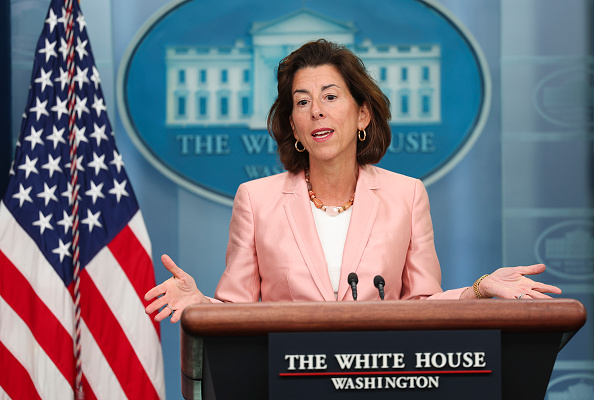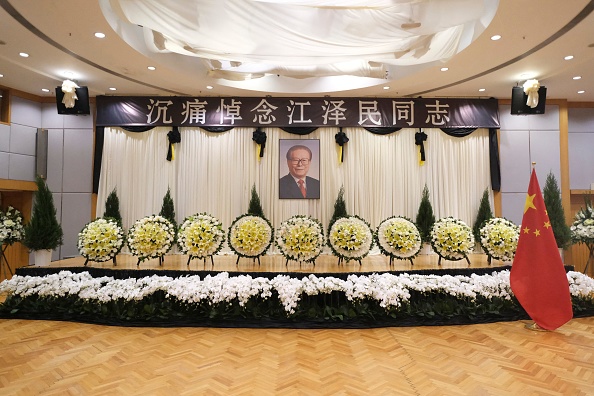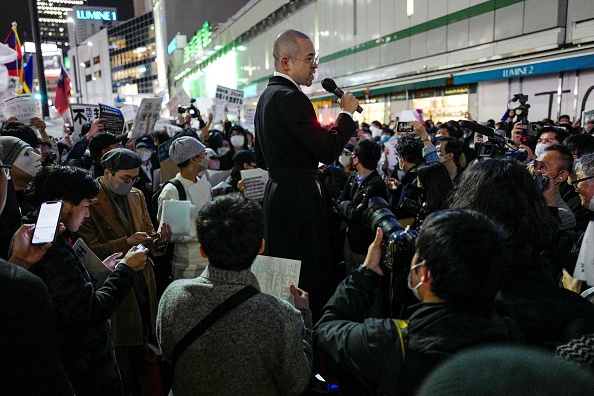
 Turf Tension
Turf TensionWhile the first meeting between Presidents Joe Biden and Xi Jinping indicated a potential cooling of tensions between the two superpowers, a recent speech by U.S. Commerce Secretary Gina Raimondo has signaled that the U.S. is retaining a tough stance when it comes to trade, national security, and human rights. Raimondo denounced China's reprioritization away from economic growth, saying that Chinese leaders have made it apparent over the last decade that "increasing the role of the state society and economy," "constraining the free flow of capital," and "decoupling in technology areas of the future," is more important than political and economic reform.
"China today poses a set of growing challenges to our national security. That is a fact. It's deploying its military in ways that undermine the security of our allies and our partners and the free flow of global trade," Raimondo said.
In her speech, Raimondo said that the U.S. is willing to "pursue an adversarial relationship over China's pursuit of an alternative vision of their country's future." Raimondo called China out for forcing the U.S. to defend its workers, businesses and those of its allies and partners, and said it will result in new U.S. ground rules for trade with China. As one solution to the growing tension, Raimondo highlighted the importance of promoting trade and investment in areas outside of core economic and national security interests.
Meanwhile, President Xi Jinping urged the European Union to oppose U.S. efforts to decouple and urged them to jointly oppose the politicization and weaponization of trade and technology. Xi said that China will remain open to European companies, and hopes that the EU would reject interference and provide Chinese companies with a fair and transparent business environment.
 A Leader of High Prestige
A Leader of High PrestigeFormer Chinese President Jiang Zemin, who oversaw China's rise as a global economic power and integrated China into the international community, died in Shanghai at the age of 96 this week. The party's official obituary hailed Jiang as "an outstanding leader" who enjoyed "high prestige" and "a communist fighter that withstood many trials and tests."
As president from 1993 to 2003, Jiang presided over market-oriented economic reforms, China's 2001 ascension into the World Trade Organization, and the awarding of the 2008 Summer Olympics to Beijing that same year.
Since his death, there has been an outpouring of support for Jiang on Chinese social media, with many affectionately referring to the former leader as "Uncle Toad." For many, Jiang is a symbol of the relative cultural freedom of the past, given his loose and quirky manner—given to singing Western songs and proclaiming his love of foreign movies.
In a letter to the party, the military and the Chinese public, officials described Jiang as "a great Marxist, a great proletarian revolutionary, statesman, military strategist and diplomat, a long-tested communist fighter, and an outstanding leader of the great cause of socialism with Chinese characteristics.
Despite zero-COVID measures, the party's entire Central Committee—205 people—will be assembled for the funeral, plus alternate members and former leaders.
 A New Stage
A New StageAfter a wave of protests swept China over the weekend, several cities have taken steps to ease their COVID-19 restrictions, and a top official has signaled a softer approach to virus controls. Notably, the protests and policy discussions also surrounded the anniversary of the pandemic, with the development of symptoms in the first documented coronavirus patient having occurred exactly three years ago on Dec. 1 in Wuhan, China.
China's most senior official in charge of its COVID response told health officials earlier this week that the country faced a "new stage and mission" in pandemic controls, according to Chinese state media Xinhua news, after three years of the country's strict zero-COVID policy.
While thousands of people attended the demonstrations that occurred in several major cities in China, the U.S. government has stated it doesn't believe they will spread or spark a wider movement against Beijing's stance.
So far, the Biden administration has responded cautiously to the protests, limiting its public comments to expressions of support for the right of peaceful protest and skepticism about the zero-COVID policy.
But despite some indications of a relaxation in zero-COVID, economists noted that markets and investors have "placed a too high probability" on significant policy change coming anytime soon, following the protests rattling global financial markets.
Read more in "Is the Benefit of China's Zero-COVID Policy Worth the Cost?," by Shang-Jin Wei, a Professor of Finance and Economics at Columbia University.
Prepared by China-US Focus editorial teams in Hong Kong and New York, this weekly newsletter offers you snap shots of latest trends and developments emerging from China every week, while adding a dose of historical perspective.
- 2022-11-18 Thawing Ties?
- 2022-11-11 Face to Face
- 2022-11-04 The Pacing Challenge
- 2022-10-28 Third Time’s the Charm
- 2022-10-21 United as Steel
- 2022-10-14 Party Time
- 2022-10-07 Elections Incoming
- 2022-09-30 Hot Intrigue
- 2022-09-23 Global Gridlock
- 2022-09-16 Injecting Stability
- 2022-09-09 Cutting Edges
- 2022-09-01 A Win for Global Business
- 2022-08-26 A Heavy Price
- 2022-08-19 Risky Business
- 2022-08-12 Backtracking
- 2022-08-05 Cross-Strait Outrage
- 2022-07-29 Playing with Fire
- 2022-07-22 Nixonian Flexibility
- 2022-07-15 List Diplomacy
- 2022-07-08 Easing Tariffs, Not Tensions
